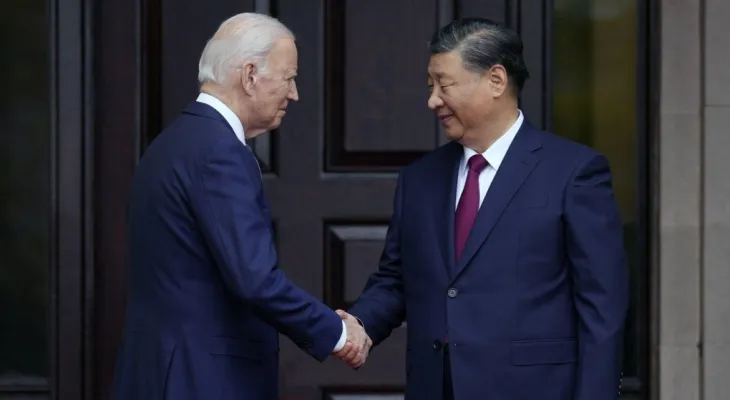Search here
Newspaper
Search here

Arab Canada News
News

Published: May 14, 2024
High-level envoys from the United States and China are scheduled to meet in Geneva on Tuesday for talks on artificial intelligence, including the risks of rapidly evolving technology and ways to establish common standards for managing it.
This meeting, described as an open exchange of views, is the first under the framework of an international government dialogue on artificial intelligence agreed upon during a multifaceted meeting between U.S. President Joe Biden and Chinese President Xi Jinping in San Francisco in November.
Both the United States and China view artificial intelligence as critical to national security and economic growth, with Biden administration officials stating that they plan to focus on developing safe and trustworthy AI. Officials insisted on anonymity to preview the meeting in a phone call with reporters.
They also said that the United States would determine how to address potential risks from technology by creating voluntary commitments with leading companies in the sector and calling for safety testing of AI products.
The U.S. government also sees China's efforts in artificial intelligence as potentially undermining the national security of the United States and its allies, with Washington competing to stay ahead of Beijing in the use of AI in weapon systems.
According to the Xinhua News Agency, citing the Ministry of Foreign Affairs, the two sides will discuss issues including the technological risks of artificial intelligence and global governance.
Sam Bresnick, a research fellow at the Center for Security and Emerging Technology at Georgetown University, noted that the United States and China are heavily investing in artificial intelligence for civil and military applications, but China has been "reluctant" to discuss the risks surrounding AI with the United States.
Bresnick, who focuses on AI applications and Chinese technology policy, emphasized in an email: "These meetings represent an opportunity for U.S. officials to gain a better understanding of China's approach to identifying and mitigating AI risks."
He downplayed any immediate prospects for reaching binding agreements to mitigate AI-related risks, but stated that the talks "could help both sides build trust" and understanding around AI issues.
The White House National Security Council stated that the U.S. delegation is led by the presidential advisor and senior director for technology and national security, Tarun Chhabra, and the acting special envoy for biotechnology and emerging technologies at the U.S. State Department, Center Seth.
The meeting highlights the broader race among governments worldwide to figure out how to rein in artificial intelligence even as the technology rapidly advances and is set to transform many aspects of daily life, from education and workplaces to copyright and piracy.
Leaders of several countries are expected to gather in Seoul next week for the second round of talks on the safety of advanced AI models, following the first round last year at the former codebreaking base in Britain during the war.
Comments